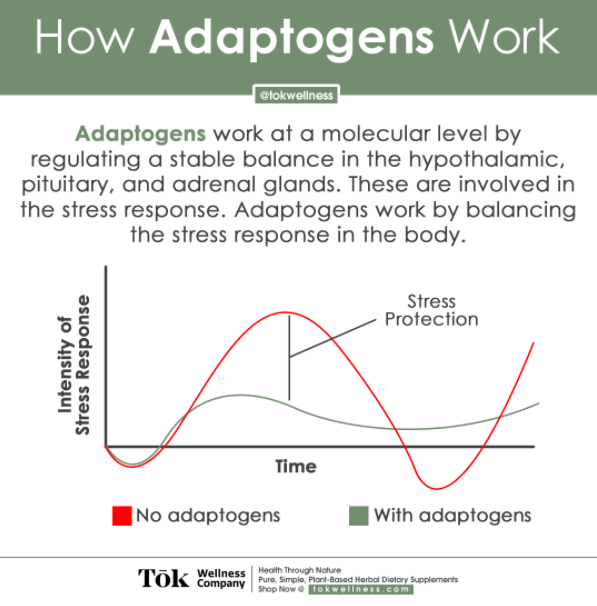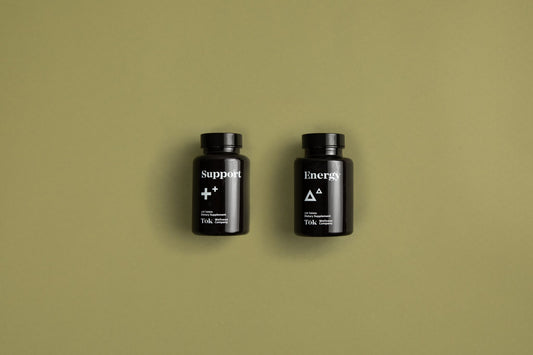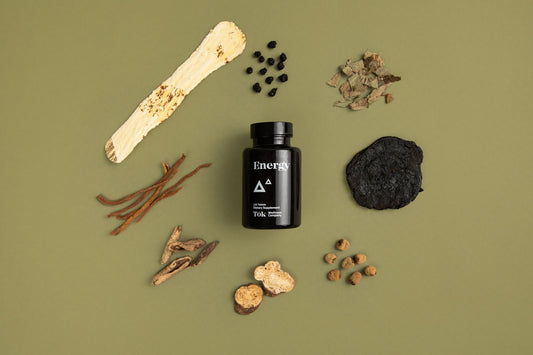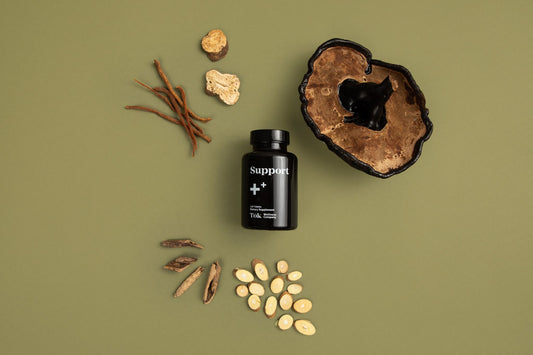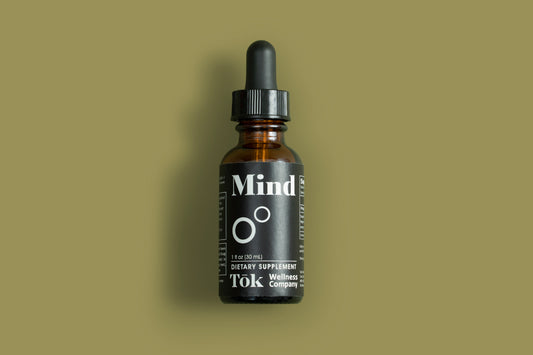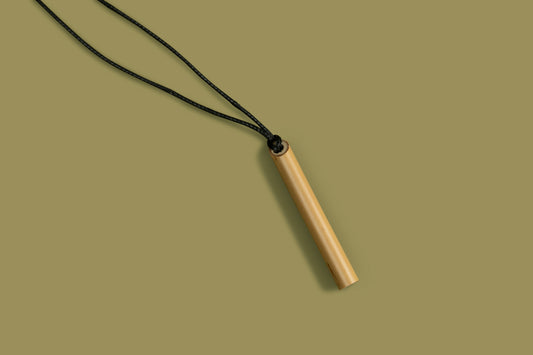Nowadays adaptogens are very popular in the health and fitness world, showing up everywhere from juice bars to lifestyle blogs or at your local health food store. Like many people, you might be curious to find out about adaptogens and whether they actually help? Here's what you need to know, and why we’ve included powerful adaptogens in our Tok Wellness supplements.
So what are Adaptogens, anyways?
Adaptogens are a select group of non-toxic plants and herbs including some mushrooms that help support your body to deal with physical and emotional stress in a better way. They are labeled as adaptogens because of their extraordinary ability to "adapt" to stressful events according to the particular needs of the body.
They help the body resist physical, chemical or biological stressors of all types and control and regulate our body’s stress response.
These plants and herbs have been used in the Chinese and Ayurvedic medicinal practices for generations. They are also seen as a safe alternative to conventional medicine and may be consumed as part of your everyday diet or taken in the form of a supplement or blended in teas.
How do they work?

When our mind or body is in a stressful state, we are not able to concentrate or focus, become weak and tired, and don’t have the physical energy we usually do to work on everyday tasks. This is where the role of adaptogens comes in handy. Adaptogens tend to soothe the hypothalamus and pituitary gland of the brain and the adrenal glands that are responsible for the development of the stress hormone cortisol.
What are some of the best adaptogens?
Each adaptogen has its own distinct function, so selecting the right one depends on the specific health condition that you are experiencing. Here are a few of the best adaptogens and some of the benefits that they offer.
Ashwagandha
Also called Indian ginseng, ashwagandha is perhaps one of the most popular and widely used adaptogens. It calms and energizes the mind to help it adapt to the stressors of everyday life. It also helps encourage deep sleep and reduces anxiety or stress.
Holy Basil
Many people use holy basil, also known as tulsi, as an ingredient in everyday meals due to its unique smell and flavor. Holy Basil is widely used in India and helps lower stress, promotes relaxation, increases concentration and circulation, and aids in digestion.
Reishi
This mushroom has been used for thousands of years in China and has plenty of evidence to back its many benefits. From boosting the immune system and reducing blood sugar to supporting the liver and fighting cancer, this mushroom is a must-have for any household.
Maca
Maca is native to South America and offers many wonderful properties. One of the main functions of this adaptogen is to help balance hormones in the body. If you suffer from chronic stress, Maca can offer relief by regulating the stress hormone cortisol.
Rehmannia
Rehmannia is an adaptogen that has been widely used for centuries in traditional Chinese medicine. It is frequently used in Asia as an important tonic for the liver, heart, kidneys and adrenal glands and to treat certain health conditions such as rheumatoid arthritis, diabetes, constipation, anemia, stress and allergies. Its root contains rehmaglitin, vitamins and amino acids, all of which possess anti-inflammatory and antifungal effects.
Schisandra
Schisandra can enhance memory, liver health and improve overall strength. This nutritious and unique berry is known as an adaptogen because it helps reduce physical and chemical stress in the body. It enhances liver function, encourages brain wellbeing, increases physical fitness and strengthens the lungs and heart.
Conclusion

Due to stress many of us are not performing at our best and are almost immobilized. Adding adaptogens like those found in Tok Wellness supplements to your diet can help you achieve your goals as they help manage chronic stress which impacts our overall health.
These statements have not been evaluated by the Food and Drug Administration. This product is not intended to diagnose, treat, cure or prevent any disease. This blog does not replace professional health advice.
